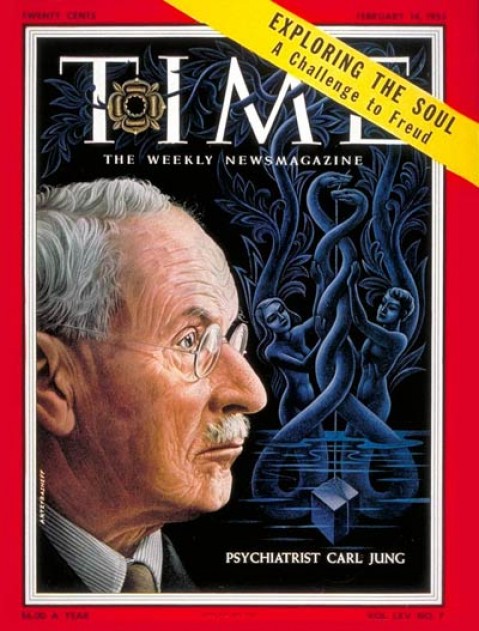Hello there!
Recently I’ve been conducting a good many presentations and workshops about personality. So today, I thought I’d briefly and simply outline one of the models for individual differences that makes sense to me: Jung’s psychological types. Carl Gustav Jung was the originator of analytical psychology after he parted ways with his longtime mentor, Sigmund Freud. Jung emphasized the unconscious mind in his theory, and he coined the term archetype that has been used by many cultural anthropologists including Joseph Campbell. Two of his seminal works are Man and His Symbols and Memories, Dreams, Reflections. Regarding his personality theory, he believed that there were 16 psychological types formed from the combination of four dichotomous variables.
Extraversion (E) vs. Introversion (I)
The central question for the first preference of typology is “how are you energized?” Extraverts recharge their mental batteries by being around other people, whereas introverts need some alone-time to maintain their sanity after a long day being around others. Introverts aren’t necessarily antisocial, but they do need some solitude occasionally to recuperate.
Intuition (N) vs. Sensing (S)
For this domain, the question is “what is your preferred way of perceiving the world?” People who prefer to use intuition perceive the world through ideas and a “big-picture” mentality. On the other hand, sensors prefer details and input via the bodily senses.
Thinking (T) vs. Feeling (F)
This preference deals with making decisions. Thinkers prefer to make decisions on logical arguments, whereas feelers use their emotions. For Westerners, this case is the classic “head vs. heart.”
Perceiving (P) vs. Judging (J)
The last typology variable concerns relating to the outside world. Perceivers tend to prefer to live life with a “fly-by-the-seat-of-the-pants” and “go-with-the-flow” attitude. Judgers—not to be confused with being judgmental—prefer organized existence based on a lot of planning.
If some of this information sounds familiar, then you may have heard of some of the assessments for Jungian typology. Probably the most well-known is the Myers-Briggs Type Indicator (MBTI), and it would not be surprising if many readers had taken it at some point. If you are interested in finding out or confirming your type, then you can take the free Jung Typology Test here:
http://www.humanmetrics.com/cgi-win/JTypes1.htm
And now…I’m curious about our readers:
